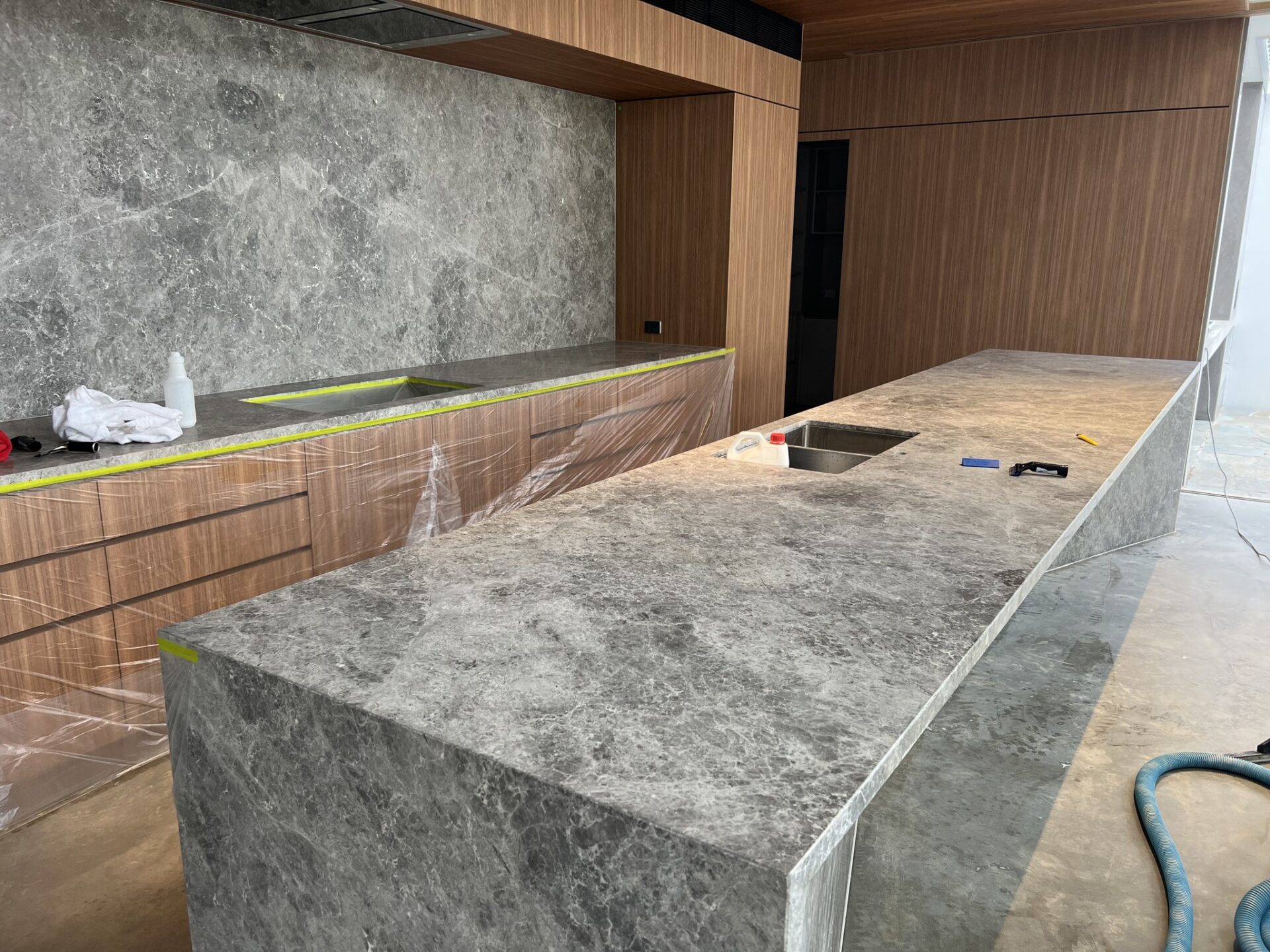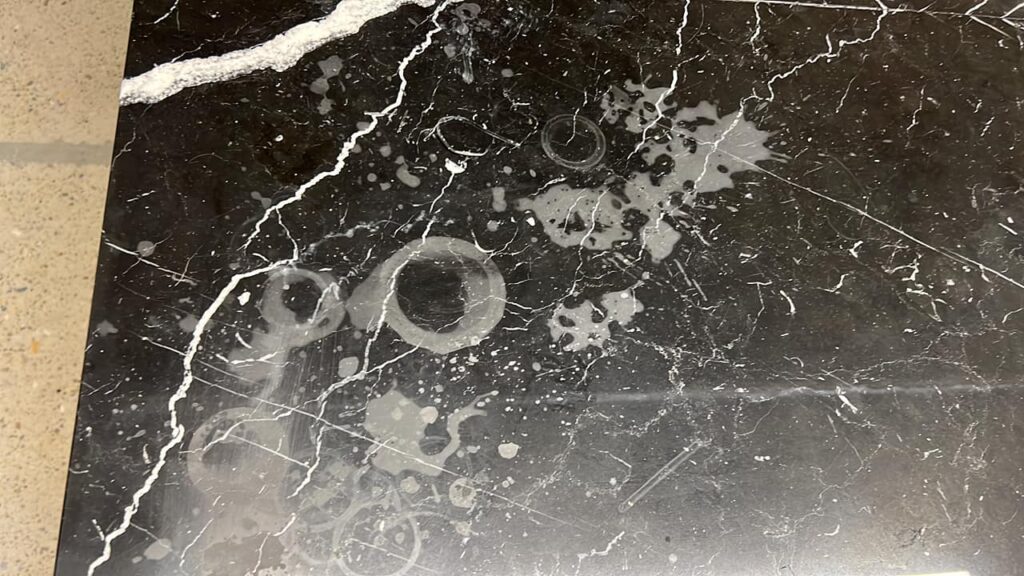Marble is a beautiful and luxurious natural stone that has been used in buildings and sculptures for centuries. It has a unique veining pattern and comes in a variety of colors, making it a popular choice for countertops, floors, and walls. However, marble is a porous stone, which means that it can absorb liquids and stains easily. In this blog, we will explore the porosity of marble and how protecting it against staining can save you money in the long run.
Porosity of Natural Stone
Natural stone like Marble is a metamorphic rock that is formed from limestone under high pressure and temperature. Its porosity is determined by the size and number of its pores, which are spaces within the stone that can absorb liquids and other substances. The porosity of marble can range from low to high, depending on the type of marble and its composition.
Low-porosity marble has smaller and fewer pores, making it less susceptible to staining. This type of marble is usually denser and more durable than high-porosity marble. Examples of low-porosity marble include Carrara and Calacatta.
High-porosity marble, on the other hand, has larger and more numerous pores, making it more prone to staining. This type of marble is usually softer and less durable than low-porosity marble. Examples of high-porosity marble include Crema Marfil and Botticino.

Protecting Marble Against Staining
Protecting your marble against staining is essential to maintain its beauty and prolong its lifespan. Here are some ways to protect your marble against staining:
- Seal Your Marble: Sealing your marble can help reduce its porosity and prevent liquids from penetrating the surface. You can hire TuffSkin to guarantee the countertop will never stain or etch. You may also choose to use a traditional sealer to make it water and oil repellent.
- Clean Up Spills Immediately: Marble can absorb liquids quickly, so it’s important to clean up spills immediately. Use a soft cloth or paper towel to blot the spill, and avoid wiping or rubbing it, as this can spread the stain.
- Use Cutting Boards and Trivets: Avoid placing hot pots or cutting directly on your marble countertop. Use cutting boards and trivets to protect the surface from scratches and heat damage.
Save Money with Marble Protection
Protecting your marble against staining can save you money in the long run. Here’s how:
- Prevents Replacement Costs: Stained marble can be difficult and costly to repair or replace. By protecting your marble against staining, you can avoid the need for costly repairs or replacement.
- Maintains Its Value: Marble is an expensive natural stone that can add value to your home. By protecting it against staining, you can maintain its value and preserve its beauty.
- Reduces Maintenance Costs: Stained marble requires more maintenance and cleaning, which can be costly. Save money with marble protection.
Conclusion
In conclusion, marble is a beautiful natural stone that requires protection against staining to maintain its beauty and prolong its lifespan. Understanding the porosity of marble and using protective measures such as sealing, cleaning up spills immediately, and using cutting boards and trivets can help prevent staining and save you money in the long run.
